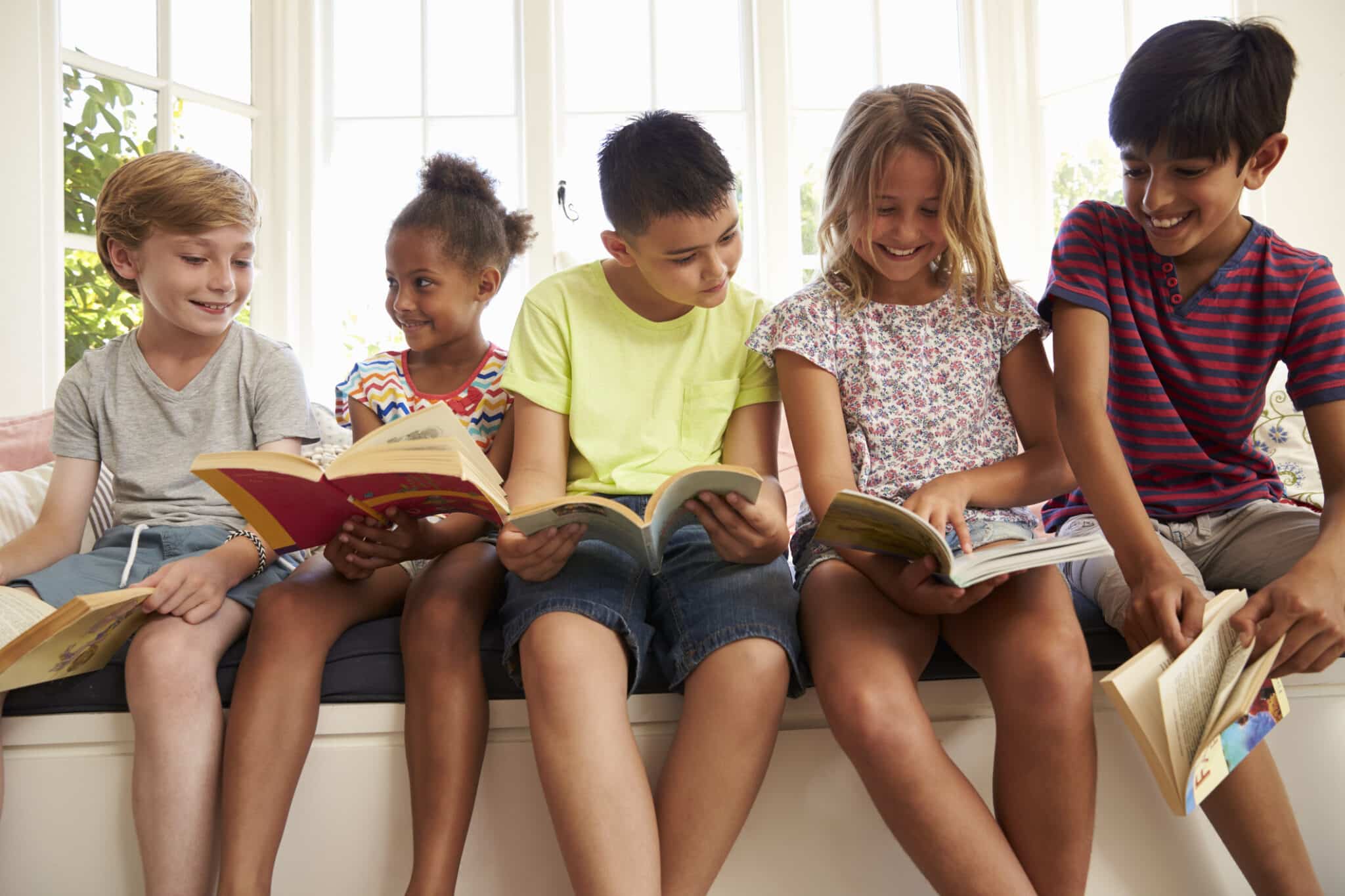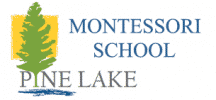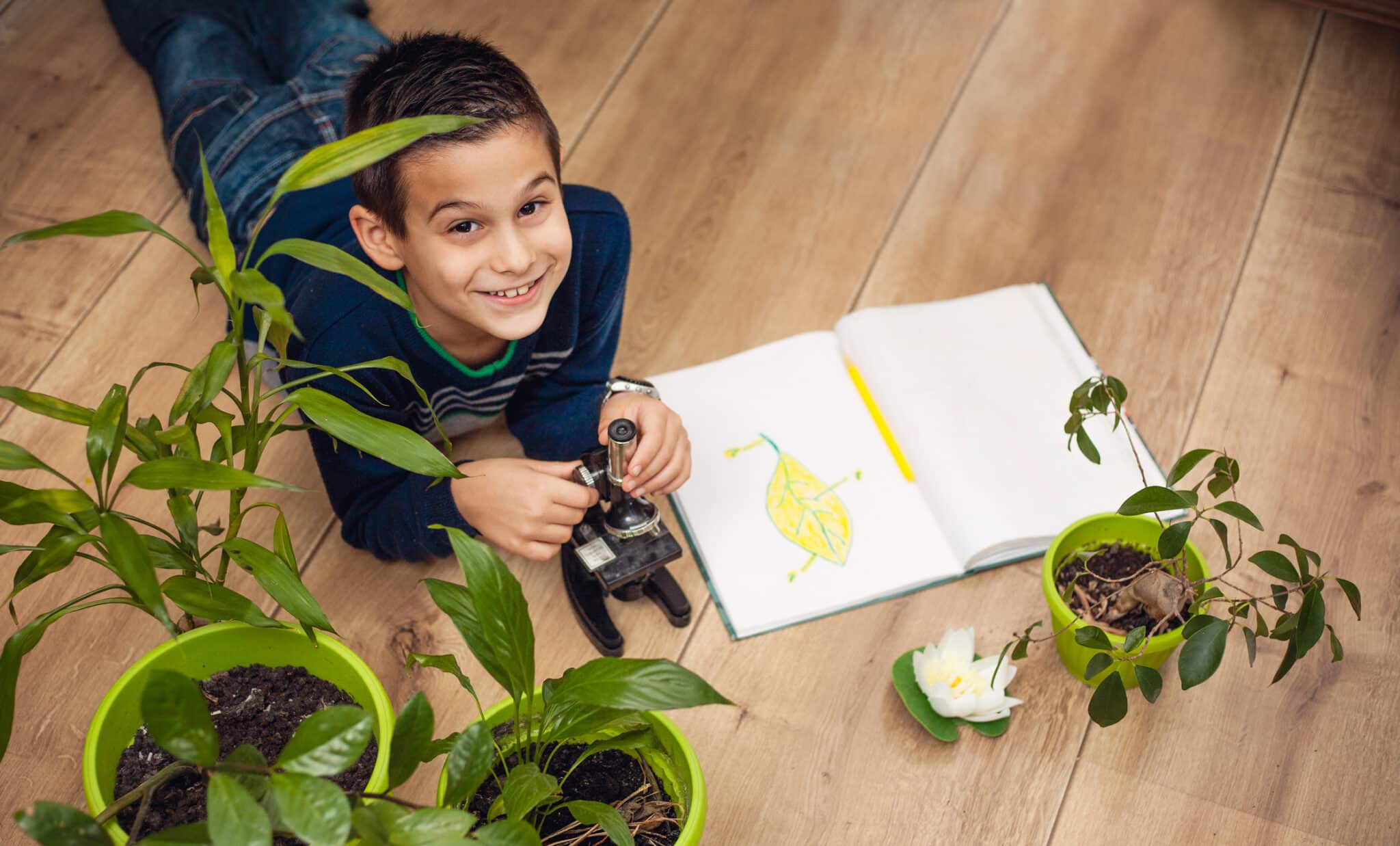What is a Lower Elementary Montessori Program?
Our Lower Elementary Montessori curriculum at Pine Lake Montessori School covers grades one through four, and is focused on providing students with a strong, comprehensive foundation for their future educational journey. We have found the perfect balance of advanced academics with an approach to learning that encourages responsibility, independence, self-confidence, self-discipline, and a strong sense of community amongst our students. Our program focuses on strengthening our students’ skills in all academic areas. We support the refinement of our students’ critical thinking skills through gently challenging work activities. Lower Elementary Montessori students use daily and weekly planners to help cultivate independence and time-management skills. We aim to foster a sense of community by inspiring our students to take on a broader view of the world, and develop an understanding of their place within it.
The primary goals of our Lower Elementary Montessori Program include:
- Building a strong foundation for our students’ academic journey and preparing them for success in the Upper Level Elementary Program across various academic disciplines.
- Striving to provide autonomy and helping develop confidence and competence in our students.
- Instilling an understanding and a sense of social responsibility.
- Helping to further enhance their critical thinking and problem-solving skills.
- Consistently encouraging creative and original thought patterns to help students’ identify their interests and their strengths.
- Working with our students and their parents to ensure we’re raising a positive contributor to our global community.
 What is the difference between a Lower Elementary Montessori Program and mainstream education?
What is the difference between a Lower Elementary Montessori Program and mainstream education?
Our Program has an appointed Directress of the Lower Elementary Program who is dedicated to coordinating the curriculum to best meet the social, academic, physical, and developmental needs of each age group. We do not settle for standardized curriculum planning set out by the Province. This allows us the flexibility to ensure each student is receiving the education that they both need and deserve.
As students progress through the Lower Elementary Montessori Program, their lessons gradually move from concrete learnings, to abstract concepts, from basic theories to complex ideation, and from distinct areas of study to integrated. Unlike traditional learning environments, our Lower Elementary Montessori Program is tailored to support the learning capacity of each student. Our curriculum is supplemented with a series of carefully curated workbooks, textbooks, and reading and spelling resources that reflect multiple levels of understanding to allow students to progress at their own pace, rather than within a pre-determined, set timeline. Our students progress, both academic and social, is regularly monitored and consistently communicated with their parents.
Our student to teacher ratios are much smaller than that of a traditional learning environment, allowing for more one-on-one attention and support. We believe the environment in which children are learning should be considered the third teacher in the classroom. Our children are also encouraged to collaborate with their teachers to help refine the curriculum to meet their needs. Students are also able to access learning materials from previous terms whenever they need to allow for repetition and internalization as necessary.
Lower Elementary Montessori Program: Areas of Study
| Subject | Description |
Language Arts |
The importance of a strong education in reading, writing, and speaking cannot be understated. Because of this, we’ve integrated the Language Arts curriculum into all subjects taught at Pine Lake Montessori. This integration provides students with many opportunities for creative and expository writing and reading, while researching difference topics in science, history, technology, etc. Our curriculum includes contemporary and classic fiction and nonfiction. Students are also asked to contribute to their own journals regularly, as well as encouraged to write letters, poems, and stories of their own. Grammar is also a main focus of our curriculum, to ensure we are helping students refine their writing skills and build a strong foundation in the English language.
|
French |
Being bilingual in today’s society can be very valuable. Pine Lake Montessori helps Lower Elementary students develop basic conversation skills and study French grammar and phonetics. To help broaden their vocabulary, students practice reading, writing, and conversing with one another in French. We leverage the AIM language program for introducing the French language.
|
Science |
A strong understanding of science is a pillar in the foundation of any student’s education. Pine Lake Montessori Lower Elementary students are engaged in a wide range of topics including biology, zoology, botany, chemistry, physics, and more. We offer a comprehensive curriculum that allows students to conduct experiments, observe the results, analyze their findings, and record all their data. Outdoor Education is a main component of our science curriculum. Students participate in outdoor science and exploration programs that use nearby parks, facilities, and other resources for hands-on learning.
|
History and Geography |
Our curriculum for History uses timelines that begin in ancient civilizations, moving through the Medieval times and into the Renaissance periods, concluding with Canada’s own rich history, helping students to understand the development of the Canadian government. Staying true to the Montessori belief of interconnectedness of all the elements in the universe, each part of our curriculum is taught in an integrated manner. For example, while Pine Lake Lower Elementary students learn about world civilizations, they will also learn how each one has evolved through time in both geography and physical features of the landscape, and from a political and economic perspective as well.
|
Technology |
In the growing digital world, technological skills are becoming increasingly important for young people to succeed. Pine Lake Montessori applies technological skills in the context of subject-matter learning, which enables our Lower Elementary students to learn while focusing on their core work. Our technology curriculum focuses on problem solving, keyboard skills, word processing training, using technology as a mode of communication, identifying the right tech tools for a particular task, and responsible and safe use of the internet to research, synthesize, and present information.
|
Physical Education and Health |
Health and fitness activities at Pine Lake Montessori are designed to help students develop physical, mental, and emotional health. The human body, stress management, and S.M.A.R.T. goal setting are just some of the components of our comprehensive health class curriculum. Students are given the opportunity to visit a nearby fitness and recreation centre once a week to take part in different sports and games including skiing, skating, racquet sports, and gymnastics.
|
Field Trips and Excursions |
By the time students enroll in Lower Elementary programs, their creative, imaginative, and social skills are beginning to develop. They are beginning to define and understand who they are as individuals, and where they fit into their local community, society, and eventually the global community. Knowing this, Pine Lake Montessori offers an inquiry-based curriculum that prioritizes these needs of the students to encourage them to achieve their utmost potential. Our students are not confined to the walls of the school; their educational journey spans far beyond the classroom and into the local community, institutes, libraries, museums, art galleries, etc. These field trips and excursions help students learn more about academic topics, but also help to develop practical life skills including social skills, responsibility, money management, time management, problem solving, cultural awareness, team work, and self-reliance—many of which cannot be taught through a textbook.
|
Math |
Pine Lake Montessori’s math curriculum for the Lower Elementary Program covers a wide range of areas including basic computation, decimals, algebra, measurement, money, patterns, graphs/ charts, problem solving, and geometry. Standard textbooks, the renowned Montessori manipulatives, application of knowledge through real life examples, and memorization of math formulae are all used to help students see the relationship between math and their everyday lives.
|
Arts and Music |
We see our Arts program as one of the main opportunities for students to share and explore their knowledge, creativity, imagination, emotions, and curiosity through different outlets. This is why the Arts is kept as a separate lesson to learn, but is also integrated into the students’ classroom work. In visual arts lessons, students study art history, they learn to critique work, they learn the fundamentals of aesthetics, and study the making of art. As the curriculum goes on, students are encouraged to explore concepts and materials in greater depth, and focus on developing creativity and aesthetic awareness and taught how to manipulate elements and forms to convey or express their thoughts, feelings, messages, or ideas through art.
|
What can students take away from a Lower Elementary Montessori Program at Pine Lake Montessori?
We want to ensure we’ve provided every Pine Lake Montessori student enrolled in our Lower Elementary Program with the skills and foundation to further their development and success at the next stages of their educational journey. Following the successful completion of our Program, parents and students can expect the following:
- Students will have refined their language skills in reading, writing, and speech communication.
- Students will have the fundamental technological skills to succeed in today’s ever-evolving, digital landscape.
- Students will be able to understand and recognize the importance of extending their education beyond the classroom and into their own natural and social environments.
- Students will begin to define who they are, along with what their role is within their own communities, and beyond that, the global community.
- Students will walk away understanding the history of civilization from both a geographical perspective, and a societal and cultural perspective.
- Students will understand and appreciate the value of fundamental math skills in their everyday lives.
- Students will be well-prepared to succeed having learnt the importance of problem solving, self-discipline, time management, and responsibility.

